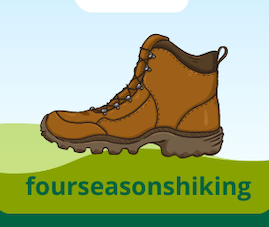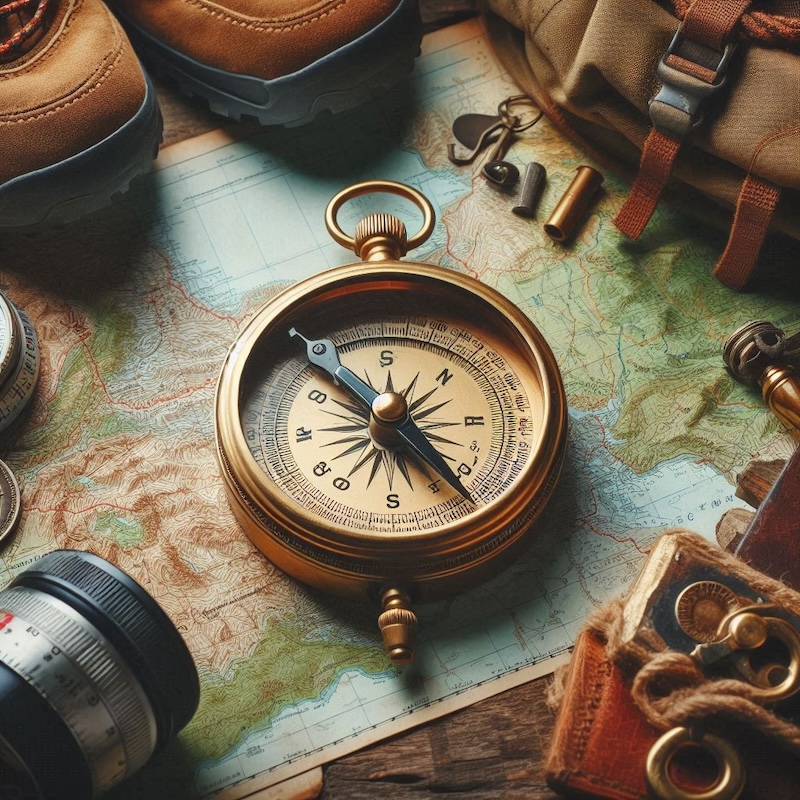Navigational skills have been fundamental to exploration and travel throughout human history. Before delving into the intricacies of the compass, it’s essential to grasp the wider context of navigational tools and the techniques developed over the millennia. From the stars that guided ancient sailors to the sophisticated GPS systems of today, navigation has a rich and varied past.
Understanding the three pillars of navigation – maps, compasses, and GPS systems – is imperative for anyone keen on mastering orientation and route finding. While each tool serves a distinct purpose, they are most effective when used in conjunction. A map outlines the terrain, a compass provides direction, and a GPS affirms your precise location.
However, with the increasing dependence on technological aids, the art of navigation risks becoming a lost skill. It’s crucial to invest time in learning the traditional methods of navigation to ensure one can navigate effectively, even when technology fails. Mastering basic skills, such as reading a topographic map or understanding the principle behind a compass, is not just about adhering to tradition; it is about safety and preparedness.
In any environment, whether navigating a dense forest or charting a course at sea, the combination of skill and proper use of navigational tools is paramount. One should never underestimate the value of a well-read map or the reliability of a trusty compass. Both can prove life-saving in situations where GPS signals are weak or non-existent.
To that end, building a robust understanding of these essentials equips adventurers and enthusiasts alike with the confidence to face any navigational challenge. Remember: safety first. Knowledge of the environment, matched with proficiency in using navigation tools, lays the groundwork for successful excursions into the unknown.
Conclusion and Anticipation of an Upcoming Tutorial
In the preceding chapters, the intricacies of the navigational compass were unraveled, equipping readers with knowledge vital for any excursion. This crucial instrument, steeped in history and perfected over centuries, remains indispensable in the modern adventurer’s toolkit.
Understanding magnetic declination and the finer points of compass points beyond mere technical know-how; it’s about developing a connection with the environment and enhancing one’s ability to navigate through it confidently.
The wisdom imparted throughout this series demystifies the art of navigation. Armed with these insights, readers are better prepared to handle directional challenges and appreciate the fusion of skills and tools that constitute effective wayfinding.
The journey doesn’t end here. To ensure thorough proficiency, keep an eye out for an upcoming video tutorial. It’ll transform this written knowledge into practical expertise, guiding viewers step by step on the path to becoming adept with a compass.
While the date is not set, the anticipation is clear: this will be an integral resource for enthusiasts eager to translate learning into action.
fourseasonshiking..com is a participant in the Amazon Services LLC Associates Program, an affiliate advertising program designed to provide a means for sites to earn advertising fees by advertising and linking to Amazon properties including, but not limited to, amazon.com. Amazon offers a small commission on products sold through their affiliate links.
Remember, the compass is not only an instrument but a gateway to exploration. Stay tuned.
fourseasonshiking..com is a participant in the Amazon Services LLC Associates Program, an affiliate advertising program designed to provide a means for sites to earn advertising fees by advertising and linking to Amazon properties including, but not limited to, amazon.com. Amazon offers a small commission on products sold through their affiliate links.


I was thrilled to come across the article on Four Seasons Hiking about developing a robust understanding of navigational essentials. Navigating the great outdoors can be both exciting and challenging, and having a solid grasp of navigational skills is crucial for a safe and fulfilling hiking experience.
Thank you for providing such valuable guidance on navigational essentials for hikers. This article serves as a valuable resource for both beginners and experienced hikers alike, empowering us to explore the beauty of nature with confidence and preparedness. Keep up the great work in promoting safe and enjoyable hiking adventures!
Marios
Thank you!
Lonnie
Wow, what a comprehensive dive into the world of navigation! I’ve always been fascinated by the blend of traditional skills and modern technology in navigating the great outdoors. Your article beautifully highlights the timeless importance of maps, compasses, and GPS systems, emphasizing their synergy for effective wayfinding. It’s refreshing to see the focus on mastering these skills beyond just relying on technology, especially in scenarios where GPS signals might falter. I’m looking forward to your upcoming video tutorial—it sounds like a perfect resource to turn theoretical knowledge into practical expertise. I have also bookmarked this website for future reference. Keep up the great work!
Thank you!
Best to your journey in affiliate marketing.
Sincerely, Lonnie
The blend of traditional navigational methods with cutting-edge technology showcased in this narrative beautifully captures the essence of exploration. The reminder to cultivate basic navigation skills resonates deeply in a world increasingly reliant on digital aids. This piece serves as a compelling call to balance modern advancements with time-honored techniques, guiding adventurers toward a deeper connection with their surroundings and a more profound sense of confidence in their explorations. Exciting to anticipate how upcoming tutorials will further bridge this gap, equipping enthusiasts with hands-on expertise to navigate the wilderness with finesse.
Yes, a compass can be an excellent means of navigation in the wilderness, it does not rely on signals or batteries, and if one knows “How to use this,” along with topographic maps it can be a lifesaver.
Sincerely, Lonnie